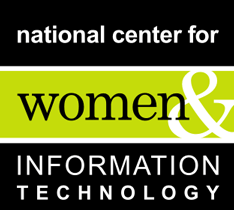
An NCWIT Community Call to Action on Racial Justice: January 2021 Update
Editor’s Note: This statement was written before the Capitol riot and ensuing violence last week; however, these events only make our commitment to change even more urgent and important.
Each new year entails looking back and looking ahead. This year we look back to underscore that 2020’s anti-Black racist violence is not a series of isolated moments to put behind us. Despite widespread public outpourings of disgust and anger, police killed Black people at three times the rate of white people. From the 1955 murder of Emmett Till to the 2020 killing of Breonna Taylor, there is a long-standing pattern of not pressing charges against those responsible for such brutal acts. And these, of course, are not the only patterns; racism is baked into the interlocking systems of American society. Racist ideologies have been publicly legitimized, inequities often go unchallenged, and those who do challenge these inequities often fear retribution. Furthermore, technologies have often been weaponized against Black people, and efforts to research or eliminate these inequities are often met with indifference or outright resistance. Hindsight highlights the critical work that lies ahead. To prevent history from repeating itself, we must eradicate systems that perpetuate racism.
Past reflection, however, is not enough. We must also look ahead to determine how we can further our and others’ work to address these pervasive systemic inequities. As we have noted before, without explicit and careful attention to intersectionality, efforts to increase the meaningful and influential participation of women in computing often default to a focus on women who are white, straight, young and middle or upper class — thus marginalizing the concerns of women of color. In our June statement, we pledged to take “actionable steps to improve NCWIT and to participate in making the technology world more welcoming to Black people.” As 2021 begins, we are following up on that statement, sharing some of the actions we have taken and plan to take. We do so in a spirit of accountability and gratitude to all of our staff and contractors, members, and partners who help make this work possible.
Internal Culture and Processes
When working with NCWIT community members we stress the need for a systemic and strategic approach to change, one that we aim to apply internally as well. To take stock of these efforts, we recently formed an internal work team focused on consistently attending to racial justice in our public work and organizational culture. The team includes staff and contractors from all levels of the organization with many different identities and cultural backgrounds. An initial focus of the team has been to develop a strategic plan for the organization, including measurable objectives related to each of the commitments made in our June statement.
Since we know that listening is an important first step to any successful strategic plan, we initiated a process of internal inquiry, conducting a survey of all NCWIT staff and contractors. The survey gathered data on individuals’ experiences and perceptions around issues of race and equity within the organization and their familiarity and comfort with anti-racism tactics. Coincident with the survey, staff and contractors attended a commissioned workshop on systemic racism conducted by the Racial Equity Institute. We also held large- and small-group internal discussions on intentional and inclusive language choices, considering terms such as womxn, female, minority, underrepresented, BIPOC, and many more, drawing from sociological, linguistic and historical perspectives.
Going forward, our survey results have laid the groundwork for ways to better equip our staff with tools and techniques for fostering equity in everyday interactions and in organizational processes. We are developing a plan for improving knowledge and skills in these areas. As part of that plan, we will be applying our own Tech Inclusion Journey assessment process (a research-based, systemic approach to creating inclusive and equitable cultures) to key “focus areas” (e.g., recruitment/selection, employee development, everyday bias). And, we are embedding increased accountability for the outcomes of our organization-wide strategic plan.
External Programming
We are also assessing how we address systemic racism in the work that we do publicly through our Alliances, programs, and initiatives. For example, both the NCWIT Academic Alliance and the Aspirations in Computing program have incorporated increased commitments around racial equity into their strategic plans, and have been making progress on program goals of increasing diverse representation.
A major part of our work is to equip K-12, post-secondary, and corporate change leaders with resources for taking action, and we are systematically assessing our resources for ways to call more attention to intersectionality and anti-racism. This fall we launched re:think, a thought leadership magazine from NCWIT. which The inaugural issue prominently features the work of Black scholars and computing professionals on topics such as racial bias in algorithms and technology, among others. We also were honored to have Dr. Nicki Washington present a public talk called “My Work is My Protest.” A new course for the open source community that addresses systemic racism and a new presentation focused on bias in software and algorithms will help us increase awareness and action. Additionally, we plan to extend our research on what constitutes “influential participation” in computing, looking specifically at equity across computing sub-disciplines and in R&D team contexts.
We will persist in leveraging our national platform of programs, campaigns, resources, and conversations to raise the visibility of people in technology who have been excluded, or otherwise marginalized. We will continue to recruit a diverse array of institutions and organizations into our membership, and individuals onto our leadership teams, to ensure NCWIT represents all who care about changing the status quo.
We know that much critical work remains, and we are committed to the journey. Change won’t happen by itself; we must keep our shoulder to the wheel. A new year represents a beacon for change, another opportunity to break the cycle of history repeating itself.